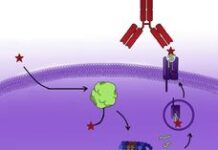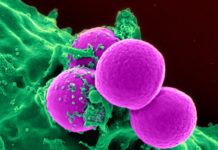On 1 September 2020, the US Food and Drug Administration (FDA) approved azacitidine tablets (ONUREG®, Celgene Corporation) for continued treatment of patients with acute myeloid leukaemia who achieved first complete remission (CR) or complete remission with incomplete blood count recovery (CRi) following intensive induction chemotherapy and are not able to complete intensive curative therapy.
Efficacy was investigated in the QUAZAR (NCT01757535), a multicentre, randomised, double-blind, placebo-controlled trial. Patients (n=472) who achieved CR or CRi with intensive induction chemotherapy with or without receiving subsequent consolidation therapy were randomised 1:1 to receive Onureg 300 mg (n=238) or placebo (n=234) orally on days 1 to 14 of each 28-day cycle.
The main efficacy outcome measure was overall survival (OS). Median OS was 24.7 months (95% confidence interval [CI] 18.7, 30.5) in the Onureg arm and 14.8 months (95% CI 11.7, 17.6) in the placebo arm (hazard ratio 0.69; 95% CI 0.55, 0.86; p=0.0009). A subgroup analysis showed consistency in the OS benefit for patients in either CR or CRi.
Adverse reactions in ≥10% patients receiving Onureg were nausea, vomiting, diarrhoea, fatigue/asthenia, constipation, pneumonia, abdominal pain, arthralgia, decreased appetite, febrile neutropenia, dizziness, and pain in extremity.
The recommended Onureg dose is 300 mg orally once daily with or without food on days 1 through 14 of each 28-day cycle. Continue Onureg until disease progression or unacceptable toxicity.
Full prescribing information for ONUREG is available here.
This application was granted priority review and Onureg was granted orphan drug designation.
Healthcare professionals should report all serious adverse events suspected to be associated with the use of any medicine and device to FDA’s MedWatch Reporting System.
For assistance with single-patient INDs for investigational oncology products, healthcare professionals may contact FDA’s Oncology Center of Excellence Project Facilitate.







